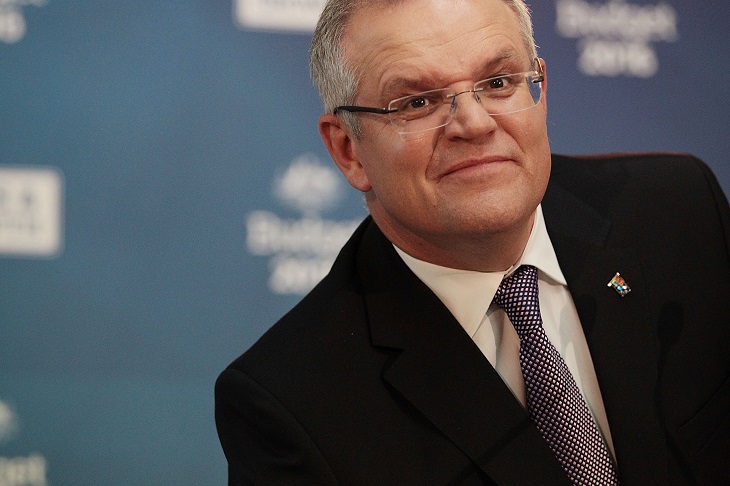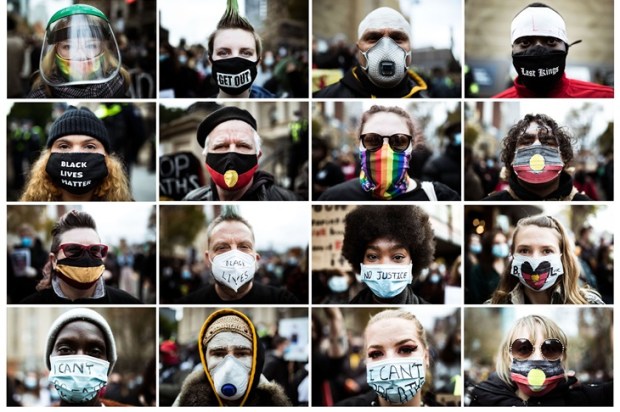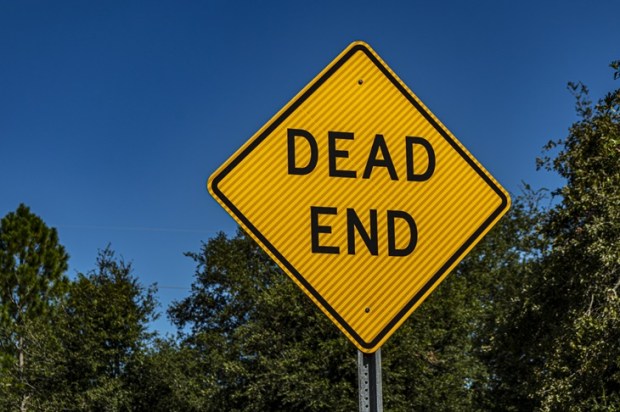Taking to the skies seems rather popular on May 21. On that day in 1927, the American aviator Charles Lindbergh finished his first nonstop solo flight across the Atlantic Ocean. In 1932, Amelia Earhart from America became the first woman to do the same.
This coming May 21, many concerned Australian citizens might also consider taking flight – from the country.
The next federal election will be held then and the excitement levels are at fever pitch – not. Indeed, one does not have to be a seasoned political observer to be worried. Conservative voters (and Christian voters) are fully aware that picking between Tweedledum and Tweedledee is not exactly a mouth-watering prospect.
Those of us who have been around for a while know that a change of government can often result in little change in actual substance and policy. Australia increasingly has only centre-left major parties now, with few real conservative options available. Thus one can become a bit cynical.
Indeed, many will be all rather jaded at the moment. As Alexandra Marshall recently tweeted:
Labor and Liberal political campaigns be like: ‘We locked you in your home for months. Ruined your businesses. Destroyed the economy. Created a new system of medical discrimination and segregation. Traumatised your children. Now, we will go head-to-head offering “free stuff!”’
Of interest, both leaders – Scott Morrison and Anthony Albanese – are now trying to convince people they actually are conservatives. Morrison says he knows what a woman is. Well, that is a good start I guess. And Labor is trying to reinvent Albanese, claiming he is a ‘fiscally conservative moderate’. Given it was only the other day he could not tell us what the jobless rate and cash rate were, this is not very reassuring.
A new book takes a dim view of the options, certainly about one of the two main parties. A political party tends to be only as good as its current leader. If the leader is not up to speed, the party suffers. That is how Perth law professors Augusto Zimmermann and Rocco Loiacono see Scott Morrison in their new book. Deconstructing ScoMo (Locke Press, 2022). As is mentioned in the preface:
This book is a collection of articles and essays published over the course of Scott Morrison’s prime ministership, with the majority focusing on the years 2020 and 2021. These pieces, written in the main by Professor Augusto Zimmermann and published in various online and print outlets and edited for this book, deal not only with Scott Morrison’s handling of Covid-19, but with many issues that are critically important to those who would traditionally consider themselves Liberal voters, namely: freedom of speech, religious freedom, individual liberty, fiscal discipline, the rise of China, wokeism, the climate change cult, and so on.
Chapter One begins: ‘The Australian Labor Party hasn’t been the party for blue-collar battlers for a very, very long time. Instead, this is the party for group interests pushing such things as state-sanctioned abortion on demand, assisted suicide, the LGBTIQPAX+ agenda, radical environmentalism, etc. However, in many ways the Liberal Party is not so different.’
Most of the book’s 20 chapters deal with freedom and how it has taken a hammering over recent years. Morrison is not alone in weakening our liberties, be they religious freedom or free speech or even the rule of law, but he has done little to strengthen them, argue the authors.
The handling (or mishandling) of Covid has been a major case in point. The authors say that the National Cabinet set up to deal with this has done far more harm than good, and the states were able to get away with murder (sometimes literally) in their incompetence and deplorable and heavy-handed lockdowns. They claim Scomo was unable or unwilling to rein in these despotic state premiers.
An entire chapter is devoted to one of the worst premiers in the country when it comes to all this: Dan Andrews of Victoria. Yes, other premiers have also been quite shocking, but Dan may take the cake here. My own website has featured many dozens of articles on the hell-hole that Victoria has become under his reign of terror.
The case of pastor Paul Furlong being imprisoned for daring to keep his church open is mentioned. On this, Zimmermann says:
But while the men and women of the cloth disappoint in shrinking from defying the state and its VicPol enforcers, my disappointment is more pronounced in the case of one prominent Christian leader in particular. I speak of Prime Minister Scott Morrison. While his fellow believers in Victoria see their most basic rights violated, Mr Morrison simply refuses to criticise the Andrews government in the name of supporting “national leadership unity”.
Then we had the pregnant mother arrested in her own home in her pyjamas in front of her little children by Andrews’ henchmen: ‘How can our system of representative government be reconciled with police bursting into private homes to arrest a mother in front of her children because of a Facebook message? Under the Victorian government, writes Greg Sheridan, “all the mechanisms of democratic accountability have virtually disappeared… Victoria has become a dysfunctional one-party state with a mostly compliant local media”.’
The chapter finishes: ‘Premier Andrews is an authoritarian ruler, no doubt about it, and the Prime Minister is effectively empowering and facilitating his arbitrary government. Indeed, the Morrison Government is actively financing and assisting these draconian lockdown measures that have inflicted great pain and suffering to the people of Victoria.’
Yes, quite right.
As a Victorian resident, I have had to live through all this hellishness. Voters should not forget how complicit Scomo was in all of this. Instead of standing up to these state dictators, he simply aided and abetted them. So much for strong and decisive Liberal leadership.
In the book’s Conclusion we read:
Contrast Morrison with Liberal leaders like John Howard and Tony Abbott, who stood out for their conviction. For most of his public life, Howard affirmed how he was inspired by Reagan and Thatcher’s conservatism. Their success in government centred on the implementation of core conservative ideals: lower taxes, smaller government, reward for individual effort, defence of the family and the importance of: national sovereignty, the rule of law and, above all, individual liberty.
The book’s final paragraph sums things up: ‘When you look at its record, the Morrison government is like Seinfeld, a show about nothing (but without the laughs). It hasn’t achieved anything of significance in three terms that you would expect a centre-right government worthy of the term to achieve. Why would it achieve anything in a fourth?’
One complaint that can be offered here is that while these chapters make for a good demolition job of Scomo, and offer a useful summary of his many failures and shortcomings as a ‘conservative and Christian’ leader, we have nothing offered by way of replacement, especially in light of May 21.
Zimmermann quit his membership of the Liberal Party a while ago, and he would certainly not encourage us to vote for Albanese and the Greens. But which way forward? The reader is left all rather discouraged in this regard. Elsewhere Zimmermann has highlighted the importance of smaller conservative parties and conservative independents as the way to go. A chapter on this would have been useful.
To be fair, a book on Albanese could also have been penned to help round out the picture. But a volume like Deconstructing ScoMo is certainly necessary. Voters – especially conservative and Christian voters – have a right to know that a politician who claims to be both will in fact deliver in this regard. As this book carefully demonstrates, for the most part, Scomo has not.
Got something to add? Join the discussion and comment below.
Get 10 issues for just $10
Subscribe to The Spectator Australia today for the next 10 magazine issues, plus full online access, for just $10.


























Comments
Don't miss out
Join the conversation with other Spectator Australia readers. Subscribe to leave a comment.
SUBSCRIBEAlready a subscriber? Log in